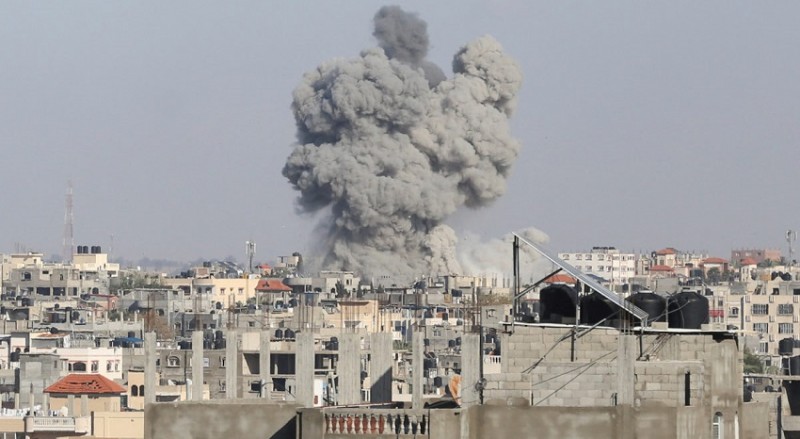
In the escalating conflict between Israel and Hamas, tensions reached a critical point as Israel launched airstrikes on the Gazan city of Rafah overnight. The strikes were a strategic move by Israel to exert pressure on Hamas ahead of scheduled talks in Egypt aimed at securing a truce endorsed by the militant group.
Throughout the night, Rafah experienced heavy bombardment, resulting in casualties and injuries. The Kuwaiti hospital in the area reported 11 fatalities and numerous injuries caused by the Israeli strikes.
Despite previous failed attempts at negotiation, Hamas announced its approval of a ceasefire proposal put forth by mediators from Egypt and Qatar. This announcement prompted celebratory demonstrations in Rafah, signaling a glimmer of hope for a potential resolution to the seven-month-long conflict.
However, Israeli Prime Minister Benjamin Netanyahu's office expressed reservations about the proposed ceasefire, stating that it did not meet Israel's essential demands. Nevertheless, Israel agreed to participate in further negotiations with the aim of reaching an agreement.
In the meantime, Israel continued its military operation in Rafah, targeting what it deemed as terrorist infrastructure to apply pressure on Hamas. This escalation led to retaliatory rocket fire from Hamas ally Islamic Jihad towards southern Israel.
The international community expressed growing concern over the situation, with calls for both parties to prioritize a ceasefire to avoid further humanitarian catastrophe. UN Secretary-General Antonio Guterres emphasized the urgency of reaching a peaceful resolution, warning against the devastating consequences of a ground invasion of Rafah.
Egypt, a key mediator in truce efforts, voiced strong opposition to any mass displacement of refugees from Gaza into its territory. The country's foreign ministry warned of grave humanitarian risks for the more than one million Gazans sheltering in Rafah.
Jordan's King Abdullah II urged US President Joe Biden to intervene and prevent what he termed as a "new massacre" in Rafah. Biden reiterated his opposition to an invasion in a conversation with Netanyahu.
Despite the diplomatic efforts, Netanyahu remained steadfast in his commitment to eventually send ground troops into Rafah to eradicate Hamas's forces. This determination stemmed from Israel's resolve to prevent a recurrence of the deadly attacks that ignited the conflict.
The October 7 attack by Hamas, which resulted in the deaths of over 1,170 people, predominantly civilians, prompted Israel to launch a retaliatory offensive. The ensuing violence has claimed thousands of lives in Gaza, with civilians bearing the brunt of the casualties.
Central to Israel's objectives is the release of hostages abducted by Hamas during the October 7 attack. Efforts by humanitarian organizations and families of the hostages have intensified, urging all parties involved to prioritize their safe return.
Amidst the escalating crisis, the plight of civilians trapped in Rafah remains dire. The United Nations Children's Fund (UNICEF) warned of a further catastrophe for the approximately 600,000 children in the area.
As the conflict continues to escalate, the fate of Rafah hangs in the balance, with the international community urging swift action to prevent further loss of life and alleviate the suffering of civilians caught in the crossfire.
Israeli Army Orders Evacuation in Rafah Amid Possible Assault
How India Reaffirms Support for Two-State Solution at UN Meeting
Police Ramp Up Presence at US Universities Amid Israel-Hamas Clashes